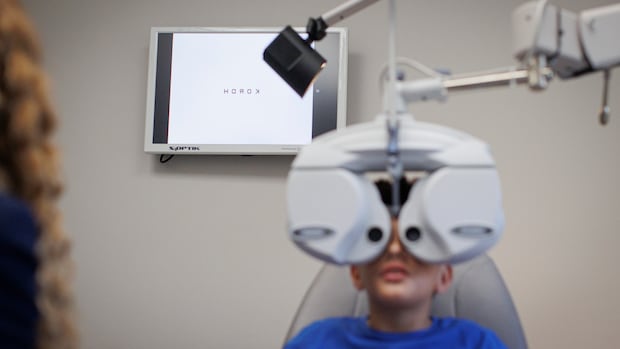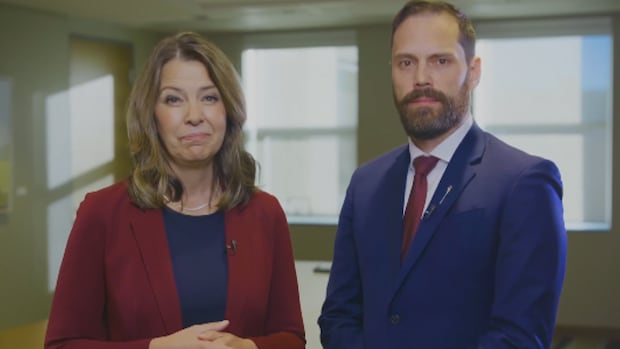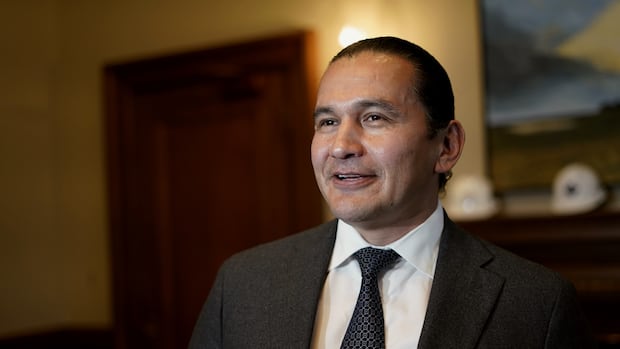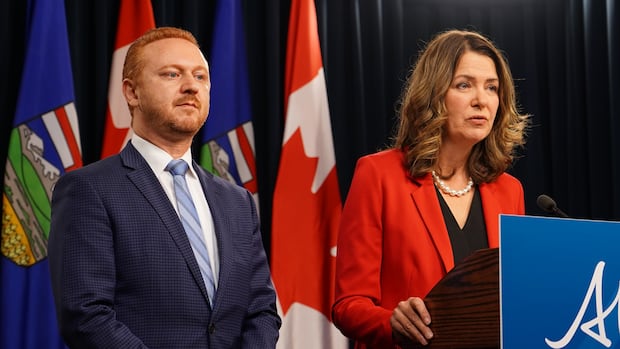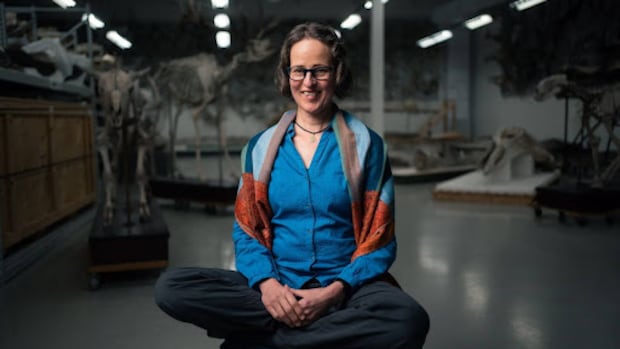Alberta Premier Danielle Smith has confirmed her government's intention to allow physicians flexibility to work in both the public and private health care systems simultaneously.
In a video posted to social media, Smith outlined how a "Dual Practice Surgery Model" would work, saying it would help reduce wait times by increasing the number of surgeries able to be performed.
Though the video focused on surgeries, Hospital and Surgical Health Services Minister Matt Jones confirmed to reporters at the legislature Wednesday that the legislation could also include family doctors.
Smith says there are more than 80,000 Albertans on wait lists for elective surgeries, like hip or knee replacements.
Smith says the changes would require surgeons and supporting surgical professionals to still perform a set number of publicly funded surgeries annually.
But they could perform additional elective surgeries privately as well, if they choose, on their weekends or off hours, said Smith.
"That means everyone on the public waitlist moves up in the queue so that they also get their publicly insured surgery done quicker than they otherwise would," Smith said in the video.
She says the change could also help retain Alberta doctors and bring back those who might have left the province for more lucrative opportunities elsewhere.
In her post, Smith says the government stands by her promise that no Albertans will need to pay out-of-pocket to see their family doctor or to receive necessary treatment.
Smith pointed to other countries that operate under a dual-model system, including Sweden, Germany and Australia.
WATCH | Alberta plans to allow doctors to work publicly and privately:Alberta Premier Danielle Smith confirms plans to allow surgeons to work in both private and public health care in an effort to reduce wait times for some surgeries. Critics warn of a two-tiered system that punishes patients who can't afford to pay for private care.Jones said the changes will make it more flexible for doctors who wish to participate in both systems. He said the current model involves a "difficult process" for doctors wishing to opt in or out of the private and public systems.
The changes were first reported by the Globe and Mail.
The Canadian Medical Association (CMA) is is calling on the Alberta government to reconsider the idea.
It said in a statement patients will "wait longer, with many paying twice for health care, once through taxes and a second time with their credit card."
In a statement Tuesday, the Alberta Medical Association responded to the speculation over the new health care model. It said any reform must be evidence-based and involve meaningful engagement with physicians, patients and stakeholders.
It also said it was essential that any shift did not negatively impact the public health care system.
In a joint statement, the Calgary Medical Students’ Association and the University of Alberta’s Medical Students’ Association said they worry the reforms will disenfranchise Albertans who can not afford private care.
“A two-tiered system is not one we would like to graduate into, nor practice in,” the statement said.
A spokesperson for federal Health Minister Marjorie Michel says the minister has been in touch with officials in Alberta about the plan.
"Health Canada officials are engaging Alberta officials to better understand the various components and implications of these proposed changes," Guillaume Bertrand said in a statement.
"Our new government will always protect the Canada Health Act and Canada’s universal health care system," Bertrand said.
 Alberta says the model would require surgeons to still perform a set number of operations each year within the public system, with the option of performing additional surgeries privately. (X/Danielle Smith)Orthopedic surgeon reacts
Alberta says the model would require surgeons to still perform a set number of operations each year within the public system, with the option of performing additional surgeries privately. (X/Danielle Smith)Orthopedic surgeon reactsDr. Keith Wolstenholme is an orthopedic surgeon based in Red Deer. He says the idea itself is not one he is totally opposed to, but told CBC News "the devil will be in the details."
In the video, Smith gives the example that a surgeon might be limited to performing 1,000 surgeries annually, due to health system funding constraints, but could possibly perform even more if given the flexibility to do so privately.
But Wolstenholme says he doesn't think many orthopedic surgeons are currently coming close to that 1,000 surgeries benchmark.
"I work more than I would want to work, and I'm not touching 1,000," he said.
Added to that, he says many health care workers are overworked as it is and suffering from burnout.
"Maybe there's lots of health care workers who are begging for opportunities to do more work, but it doesn't feel like that's necessarily the case right now," said Wolstenholme.
Think tank hails move"This is Alberta moving toward the international norm," said Nadeem Esmail, director of health policy at the Fraser Institute think-tank.
Esmail said the reforms will put the province more in line with other countries following a dual system.
"If you're a patient in Sweden or in Australia, to have access to the private health care system is normal," said Esmail.
"Canadians can now stay at home and get that private health care if they can afford it, but not afford the cost of the plane ticket."
Canada Health Act concernsSome in the medical field warn this proposal could put the province at odds with the Canada Health Act, the federal legislation that lays out the rules for the country's publicly funded health care insurance system.
It prohibits charging for necessary services that are already publicly insured.
Dr. Paul Parks, past president of the Alberta Medical Association, said these reforms could be a "death blow" to the act.
"Do we as a society think that access to health care should be dictated by your pocketbook?" said Parks. "Tommy Douglas would be rolling over in his grave right now."
Jason Sutherland, director of the Centre for Health Services and Policy Research at the University of British Columbia agrees these changes could breach the act, and said there could be fallout.
"There could be legal challenges, or a clawback from the Canada health transfers, which has been the past way that the federal government has dealt with contraventions to the Canada Health Act," said Sutherland.



